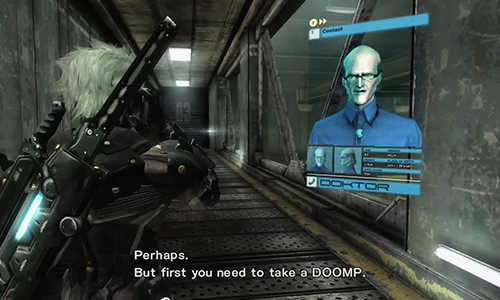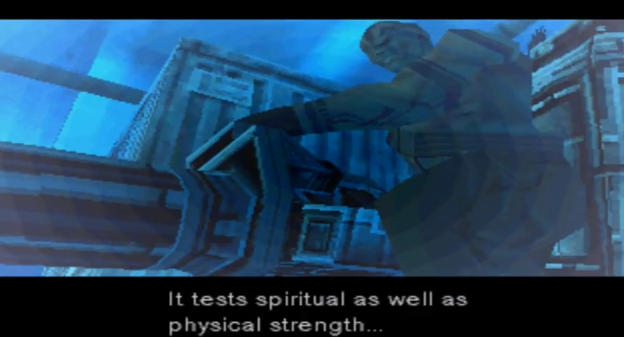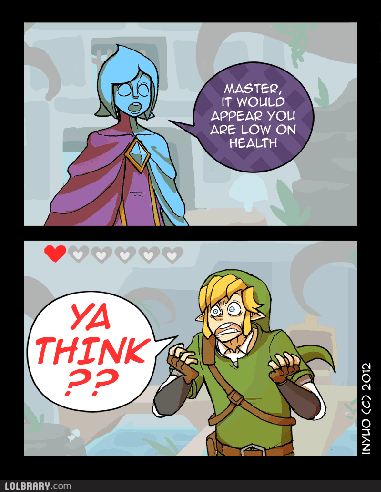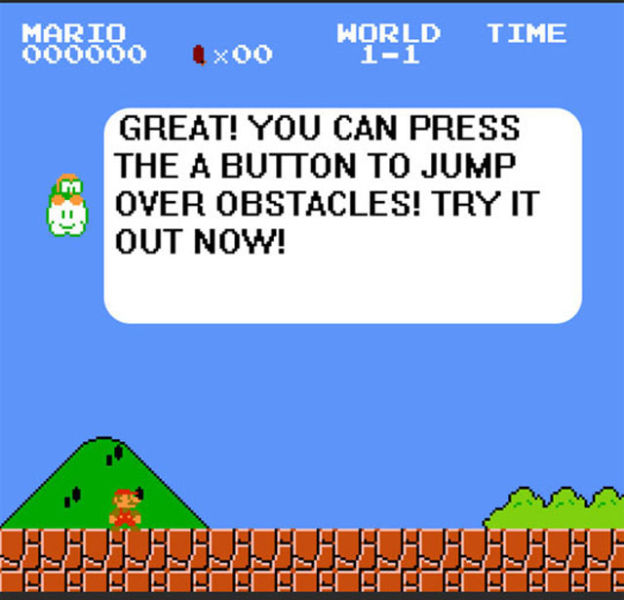yeah I think about this a lot too. I hate how there's always someone talking in your ear in modern games. Dark Souls isn't for everyone, but the nonlinear quality, problem solving, and solitude of it are a welcome change.
Kid Gloves: When Hand Holding Goes Too Far
Oh, I need to press the GLOWING BUTTON in the room with nothing else in it? Thanks for telling me...I NEVER would have figured that out on my own!

As I was moving into the end game of Metal Gear Rising: Revengeance, I was tasked with finding three power couplings to unlock a door. It was a simple enough job, but in a game that had been almost entirely a linear affair, I was glad to have the rails taken off if even for a small section. It turned out that this wasn’t the case; any time I got remotely close to one of the power couplings Doktor would chime in on my codec to inform me that I was near my objective. Frowning, I destroyed the coupling and repeated the task with Doktor telling me exactly where to go and what to do. It made me realize just how much game design has changed in recent years, and what needs to be done to combat the need for constant hand holding that game designers have developed.

The Revengeance example is in stark contrast to 1998’s Metal Gear Solid. In that game there was a similar task given to Solid Snake towards the end of the story. In order to gain access to the Metal Gear Rex prototype, Snake needs to use three key cards. He’s tipped off that he already has all three keys on him—the card he possesses changes shape based on temperature. However, Snake isn’t told exactly how to bring these changes on. Instead, it’s up to the player to figure out that the key needs to be equipped while Snake is in the refrigerated area where Vulcan Raven was defeated and the smelting area on the route towards Rex. It wasn’t a huge brain teaser, but solving this little puzzle added something special to the game.

I’ve been thinking a lot about how games today seem to be focus tested to death. I don’t know the criteria for video game focus testing groups, but I get the impression that they attempt to pull in as many people that have no gaming experience (or cursory experience) as they can. This, of course, is because publishers are trying to reach as wide an audience as possible. The problem with that, obviously, is that certain games simply aren’t going to reach that audience. A game like Metal Gear Rising, for example, is going to appeal to a niche audience within a niche audience: fans of Japanese-developed action games that also love the crazy plotlines of Metal Gear games.
As a veteran of video games, nothing annoys me more than a game telling me what to do before I even have a chance to try things out for myself. This hand-holding can achieve extremes quickly, even in game franchises that have been around forever. After an already too-long tutorial section for The Legend of Zelda: Skyward Sword I shut the game off when, as I was about to use a save point, my guide stopped the game to tell me how to use a save point.. I was there to enjoy the new Zelda game, not to be coddled as if I’ve never played a video game before.

Of course, things can go in the opposite direction as well. Video games are far more complex than they were in the days when you could pick up a controller and know exactly what each button does in a couple of minutes. Controllers have a lot more buttons now, and characters gain moves and abilities throughout the course of a game. If the designers don’t teach players what their character is able to do or how the systems and mechanics actually work, the player may get frustrated and move on. I’ve talked to many people that couldn’t get into the first Mass Effect -- a game that does a poor job of explaining its controls and mechanics. Once I showed these more casual gamers how the game is actually supposed to be played they were able to go back and really enjoy it.
There is a happy medium that can be reached and it goes beyond something like difficulty settings. I keep thinking back to Heavy Rain, a game that didn’t have “easy”, “normal”, and “hard”, but instead asked players how familiar they are with a PlayStation 3 controller. This is something I think could be applied to games across the board, perhaps even on a system level for the upcoming consoles. Ask me what my experience is with games. If I say “I’m really experienced with this genre”, maybe take the kid gloves off, eh? It’s not just a matter of intrusive tutorial messages—those can be turned off in the options on most games. I’m talking about constant NPC dialogue pestering the player to do “x”, or exactly how “y” needs to be used on “z” before the player even has a chance to look for “z” on their own.

This isn’t a rant about how games today are garbage and things were better when games were obtuse for the sake of being obtuse. I think “hardcore” gamers sometimes conflate challenge with poor game design. We’ve learned a lot about the language of video games over the years, and developers should take that into account. If you’re conversant in the language of video games your experience should be different than someone who only knows a few phrases. I’m all for growing the gaming audience, and I think the ability to customize Mass Effect 3 (choose action, story, or RPG -- a separate setting from difficulty) is a step in the right direction. There’s much more that can be done, though, and as we move into the 8th generation of consoles I think it’s high time that developers learn to give gamers the benefit of the doubt when it comes to their ability to play video games.




Comments